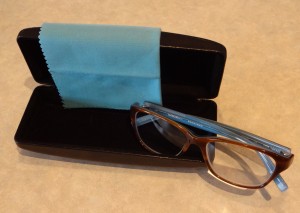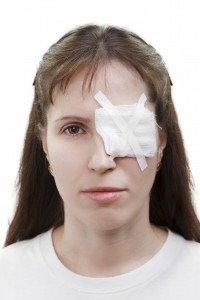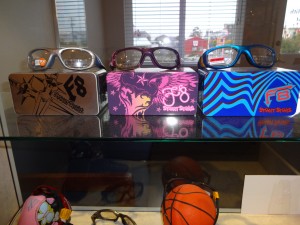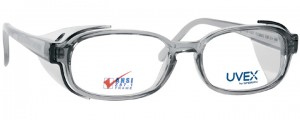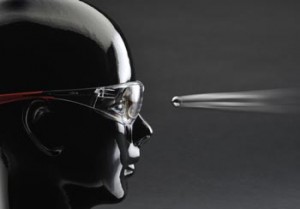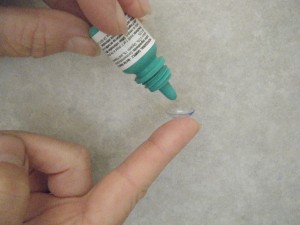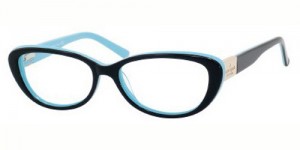The lenses you choose for your eyeglasses – even more than the frames – often will determine how happy you are with your eyewear.
When buying eyeglasses, the frame you choose is important to both your appearance and your comfort when wearing glasses. But the eyeglass lenses you choose influence four factors: appearance, comfort, vision and safety.
A common mistake people make when buying eyeglasses is not spending enough time considering their choices of lens materials , designs and coatings.
Lens Materials
Eyeglass lens thickness is determined in part by the size and style of the frame you choose. For thinner lenses, choose smaller, round or oval frames; plastic frames hide edge thickness better.
Glass Lenses. Originally, all the eyeglass lenses were made of glass. Although glass lenses offer exceptional optics, they are heavy and can break, potentially causing serious harm to the eye or even loss of an eye. For these reasons, glass lenses are not used for eyeglasses very often.
Plastic Lenses. The first plastic eyeglass lenses were made of a plastic polymer called CR-39. Because it is half the weight of glass, has good optics and is inexpensive, it remains a popular choice for lens material.
Polycarbonate Lenses were introduced in the 1970s for safety glasses. Originally developed for helmet visors for the Air Force it offers a lighter and significantly more impact-resistant option. It is preferred for children’s eyewear, safety glasses and sports eyewear.
Trivex is a newer lightweight eyeglass material with similar impact-resistant properties as polycarbonate. It has better clarity than the polycarbonate, but isn’t quite as thin.
High-Index Plastic Lenses are indicated for thinner, lighter eyeglasses. High-index materials also provide UV protection.
Lens Treatments
For more comfortable and better looking glasses, the following lens treatments are available.
Anti-Reflective Coating (ARC) makes all eyeglass lenses look and perform better. 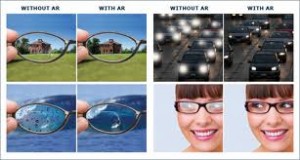 ARC eliminates reflections in lenses that reduce contrast and clarity, especially at night. The coating makes the lenses look invisible and increase the transmission of light. This is especially important in high index lenses, because of the higher index of refraction that causes more light to be reflected.
ARC eliminates reflections in lenses that reduce contrast and clarity, especially at night. The coating makes the lenses look invisible and increase the transmission of light. This is especially important in high index lenses, because of the higher index of refraction that causes more light to be reflected.
Adaptive Lenses or Transitions change color depending on the ambient ultraviolet light levels.
Digital Lenses reduce aberrations and improve clarity. This is most important in higher prescriptions and progressive lenses.
The next time you are selecting glasses, take advantage of the Westside Optometry team to design the optimum pair for you.

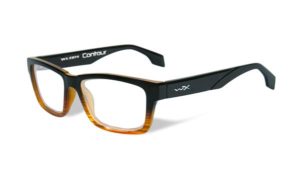

 [heading centered=”yes” margin_bottom=”no”]Wear sunglasses with UV protection[/heading]
[heading centered=”yes” margin_bottom=”no”]Wear sunglasses with UV protection[/heading] 
